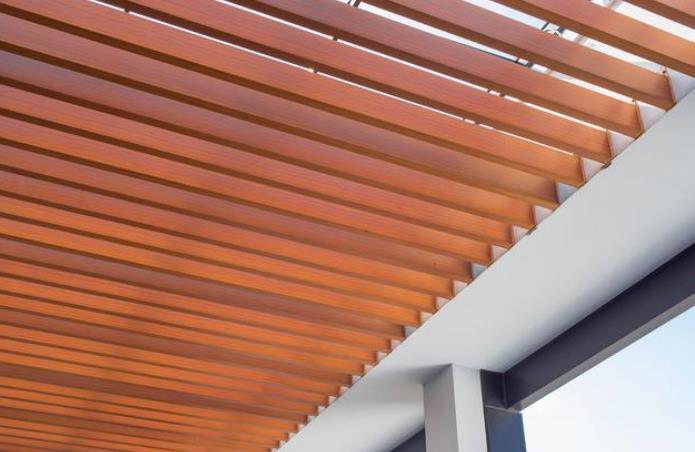Introduction
Surface treatment plays a crucial role in enhancing the aesthetics, durability, and performance of aluminum square tube ceilings, making them a vital component of modern architectural decoration. Let’s delve into the common surface treatment methods available and their respective benefits.
Anodizing Treatment
Anodizing is a process that forms an oxide film on the surface of aluminum through electrochemical methods. This treatment not only enhances corrosion resistance and hardness but also adds unique color and luster, improving the overall aesthetics of the ceiling while ensuring durability.
Electrophoretic Coating Treatment
Electrophoretic coating involves depositing paint evenly on the aluminum surface through an electric field. The resulting coating is uniform, durable, and provides excellent corrosion resistance and decorative properties, ensuring longevity and visual appeal.
Powder Spraying Treatment
Powder spraying entails evenly applying powder coating onto the aluminum surface through electrostatic spraying, followed by baking to form a hard coating. This method offers a wide range of colors, excellent weather resistance, and durability, making it ideal for various architectural applications.
Wood Grain Transfer Processing
Wood grain transfer involves transferring wood grain patterns onto aluminum surfaces, offering an authentic wood grain effect without the susceptibility to moisture and deformation associated with natural wood. This method combines aesthetic appeal with durability for long-lasting performance.
Thermal Transfer Printing Treatment
Thermal transfer printing transfers pre-printed patterns onto aluminum surfaces through hot pressing, creating decorative layers with vibrant colors and clear patterns. This customizable method is suitable for personalized decoration needs, adding unique visual elements to architectural designs.
Fluorocarbon Spraying Treatment
Fluorocarbon spraying is a high-performance process that results in coatings with excellent weather resistance, corrosion resistance, and self-cleaning properties. This treatment ensures long-term beauty and stability, even in harsh environmental conditions, making it a preferred choice for architectural applications.
Polishing Treatment
Polishing involves removing rough parts of the aluminum surface to achieve a smooth, mirror-like finish. Polished aluminum square tube ceilings exhibit high reflectivity and gloss, creating a noble and elegant decorative effect suitable for upscale architectural designs.
Roller Coating Treatment
Roller coating evenly applies paint onto aluminum surfaces, forming a uniform coating through baking or natural drying. This method offers simplicity, cost-effectiveness, and suitability for large-scale production and application, making it a practical choice for architectural projects.
Conclusion
Selecting the appropriate surface treatment method is essential for enhancing the aesthetics, durability, and performance of aluminum square tube ceilings. Each treatment option offers unique benefits, allowing architects and designers to achieve their desired visual and functional outcomes in architectural projects.
